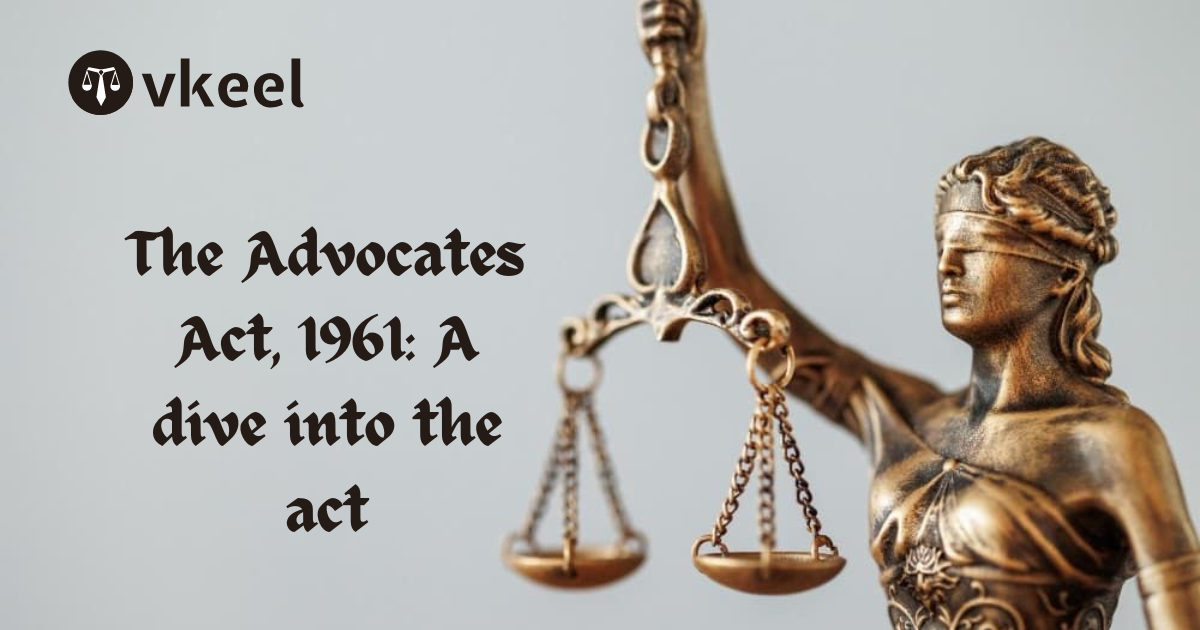Doctrine of Res Judicata: Critical Analysis
By Advocate Anik
Introduction
In simple language, the term Res-Judicata refers to a situation which has been decided on its merits and cannot be litigated again-again by the same parties. The concept generally refers to the concept that re-adjudicating a dispute or situation which has already been adjudicated is against the interest of society.
So, in short, Res-Judicata is a legal concept or principle in which the court prohibit the parties to suit to file the same suit on the same grounds, with the same parties and in the court of concurrent jurisdiction. If a party to a case do the same the court would apply the principle of Res-Judicata and the court would not accept such petition filed by the party.
The main reasoning behind the principle is that, one judicial contest is enough on a specific case. Also, there is a need to restrict filing of multiple of cases on same issue over and over again, as it would increase the number of cases pending in the court and there cannot be no end to litigation. So, in order to bring end to a litigation the doctrine of Res-Judicata was accepted and enacted.
Consult with: Top Lawyers of India
Brief History and Origin of Res-Judicata
The Res-Judicata is a short name for a Latin maxim “Res Judicata Pro Veritate Accipitur”. It has been shortened over time. The concept of Res-Judicata was originated from English Common Law system, and depends upon the concept of Judicial economy, continuity, and finality. From there it was adopted in the Code of Civil Procedure, and later was adopted by our Indian Legal System.
According to Spencer Bower, the theory of Res-Judicata can be described as “a final judicial judgement pronounced by a judicial tribunal having competent jurisdiction over the cause or the matter in litigation, and over the parties thereto”[1].
Res-Judicata Under Civil Procedure Code, 1908
The concept of Res-Judicata has been described under Section 11 of the Code of Civil Procedure. It states that– “No court shall try any suit or issue in which the matter directly and substantially in issue has been directly and substantially in issue in a former suit between the same parties or between the parties under whom they or any of them claim, litigating under the same title, in a Court competent to try such subsequent suit or the suit in which such issue has been subsequently raised, and has been heard and finally decided by such court”.[2]
The concept of Res-judicata has been derived from three Latin maxims:
- Interest republicant sin finis litium – It means that to bring an end to a litigation is in the interest of the state.
- Res judicata pro veritate occipitur- The Judgement of the court should be considered true.
- Nemo debet lis vaxari pro endem causa- It states that a person should not be vexed, annoyed, harassed twice for the same offence.
Talk with: Best Lawyers of India
The concept of res-judicata is more than just a legal principle, it stands on both the principle of public policy and private justice.
The doctrine aims to bar a subsequent suit filed on the similar ground, with same parties and in the court of same jurisdiction. But for the applicability of doctrine of Res-Judicata, there are certain condition which are needed to be fulfilled. These conditions are :
- The parties to the former suit and subsequent suit must be the same.
- The question in issue in the subsequent suit must have been answered and decided in the former suit by the court of same jurisdiction.
- The parties in the former suit must be fighting for the same title.
- The court which decided the former suit must be of same jurisdiction and competency. (This must be subject to the provisions contained in Explanation VIII, which was added by amendment in year 1976)
If these conditions are applicable in the former suit, then the rule of Res-Judicata is more of mandatory than advisory. The court has to apply this rule and reject the petition filed by any of the party of the former suit. But if the party provides evidence of fraud or conspiracy in the former suit then court can reverse the judgement in the former suit and accept the petition. This concept of invoking Res-Judicata is provided under Section 44 of the Indian Proof Act.
Consult with: Top Lawyers of India
Landmark Judgements
Reasoning and Acceptance of Res-Judicata
In the case of Satyadhan Ghosal v. Smt. Deorajan Deb[3], for the first-time reasoning behind accepting the concept of Res-Judicata was explained. In this Hon’ble Justice Das Gupta observed that “The concept of res judicata is based on the requirement for judicial rulings to be definitive. It states that if res is adjudicated, it cannot be adjudicated again. It primarily applies in the context of past and future lawsuits. When a case has been resolved by two parties in one suit, whether on a question of fact or statute, and the ruling is definitive, either because no appeal was made to a higher court or whether the appeal was rejected, or because no appeal lies, neither side would be permitted to join in a potential suit.” This case explained that the concept of Res-Judicata in India is based on the need to give finality to a Judicial Decision.
Res-Judicata and Writ
For the first the first time the concept of Res-Judicata is applicable to writ was decided in the case of M.S.M. Sharma Vs. Dr. Shree Krishna[4]. In this case for the first time, it was held that, “the general concept of Res-Judicata extends even to writ petition filed under Article 32 of the Indian Constitution. If the Supreme Court dismisses a petition filed under Article 32, any subsequent petition is barred as well.”
The Supreme Court in detail talked about this provision in the case of Daryao Vs. State of UP[5]. The Judgement laid down several principles regarding res-judicata in the applicability in writ petition, which can be filled in detail in the Judgement.
Res-Judicata and Public Interest Litigation
For the first time the Supreme Court held that “The concept of Res-Judicata is even extended to Public Interest Litigation cases as long as there is a legitimate case.” Forward Development CO. Vs. Prabhat Mandal.[6]
Talk with: Best Lawyers of India
Res Judicata and Res Subjudice
The doctrine of Res-Judicata applies to a case or suit which has been already decided or adjudicated by the competent court, whereas the concept of Res-Sub Judice applies to a case or suit which is still pending before an authority and waiting for decision. The concept of Res-Sub Judice in simple language can be understood as a concept or principle through which the parties are barred to file a similar suit, in which previous suit with same parties is pending before the same court. In case it was held that,” the purpose of principle of Res Sub-Judice prevents the court from proceeding with the trial of any suit in which the matter in issue is directly or substantially the same with the previously instituted suit between the same parties and the court where the issue is previously instituted is pending has the power to grant the relief sought.”
So, in short, the main purpose of this suit is to prevent multiplicity of pending cases in the court. Also, to prevent having two different judgements by two different courts of similar jurisdiction or concurrent jurisdiction.
The concept has been described under Section 10 of the Civil Procedure Code. The conditions necessary to apply principle of Res-Sub Judice has been described in the section itself.
Exception
In the case of Mental Health and Neuro Sciences Vs C. Parmeshwara[7] it was held that, “The pendency of a suit in a foreign court does not preclude the courts in India from trying a suit founded on the same cause of action”.
Conclusion
The reason behind having the concept of Res Judicata is to prevent multiplicity of suit and to prevent the parties to a suit to file a subsequent suit with same parties and same ground in the former suit which was decided by a competent authority. The option parties have is to move to a high court through appeal. Parties have right to appeal to a higher court but they cannot file a new suit in similar court in which the matter was decided earlier. The scope of the concept is very broad it applies to writ petitions, and Public Interest Litigation cases as well.
To apply the principle of Res-Judicata there are certain condition which are pre-requisite. Like, the issue must same, matter must be decided by a competent jurisdiction, the parties must be same, and the title for which former suit was contested must be the same. But they are certain exceptions to this rule as well. Like if there is a change in law then it doesn’t bar the party to file a new case.
Consult with: Top Lawyers of India
So, in conclusion I would say the concept or principle of Res-Judicata is more of obligatory then mandatory. The rule must be applied so that the number of cases in the Indian courts can be reduced and multiplicity of cases can be reduced. The aim of the doctrine is to put an end to lawsuits and for that scope of doctrine can be extended in future to reduce the cases.
References
[1] Kevin M. Clermont, “Res Judicata as Requisite for Justice,” 68 Rutgers University Law Review (2016).
[2] Universal Law Series Code of Civil Procedure,1908 (Bare Act)
[3] AIR 1960 SC 941
[4] 1959 AIR 395
[5] AIR 1964 SC 1457
[6] 1986 AIR 391, 1985 SCR Supl. (3) 766
[7] AIR 2005 SC 242
Disclaimer:
The information provided in the article is for general informational purposes only, and is not intended to constitute legal advice or to be relied upon as a substitute for legal advice. Furthermore, any information contained in the article is not guaranteed to be current, complete or accurate. If you require legal advice or representation, you should contact an attorney or law firm directly. We are not responsible for any damages resulting from any reliance on the content of this website.












